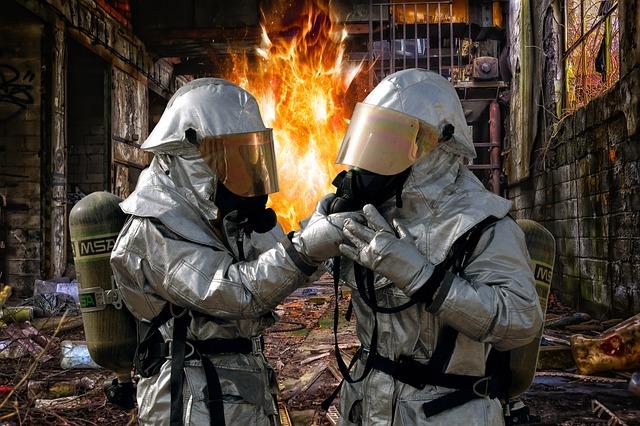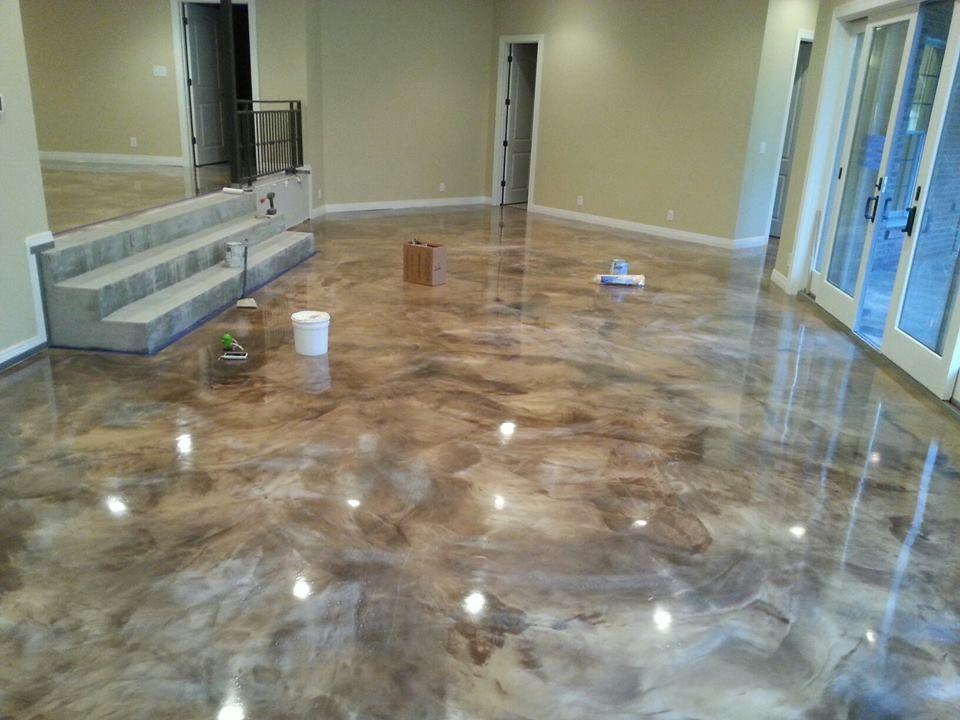
Fire outbreaks in buildings pose a destructive threat to human lives and properties. They often result in injuries and death.
The right information about fire safety measures is a very crucial knowledge that you must acquire alongside your family and workers because it is a life hack that can save your life and that of others whenever a fire outbreak occurs.
In this article, we shall be explaining what fire safety measures are all about and the must-know fire safety measures in buildings that can help to protect lives and properties against fire hazards.
What are Fire Safety Measures?
They refer to the planning and infrastructural design aimed at reducing the risk of fire or impeding the spread of fire during an outbreak.
The measures encompass three different crucial approaches, which include prevention of fire outbreaks, fire safety education, and limiting the spread of fire when one occurs.
These three approaches are the important steps employed in the effective prevention and mitigation of fire outbreaks in buildings. We shall discuss them in detail below.
Fire Safety Measures in Buildings

1. Prevention of Fire Outbreak
The existence of combustible items and/or inflammable liquids that are peculiar to buildings often puts every building at the risk of a fire outbreak. It is, therefore, important to be overly careful when dealing with such items.
A fire outbreak can ensue from any section of the house—the kitchen, bathroom, or living room. It can come from any source like electricity, open fire, or heating system in the bathroom.
Human error as a result of carelessness while handling industrial equipment or lack of technical knowledge in carrying out certain operations are the common factors that are mostly responsible for fire outbreaks in industrial buildings.
Preventing fire outbreaks is the most important fire safety measure. Being extra careful and practicing the various preventive measures in sections of buildings where a fire is frequently used will help to prevent fatal destruction of properties and loss of lives.
Extra care should also be taken in areas where there is a high risk of fire accidents such as the kitchen, fireplace, and workplaces that involve the production or frequent usage of combustible materials.
The preventive measures against fire are immeasurable; the most important ones are summarized below for easy recollection.
- Practicing good daily habits. They include the cleaning, tidying, and removal of unnecessary items that might hinder the easy passage of people and facilitate the spread of fire during an outbreak
- Limit the use of combustible and inflammable items like candles, incense, and gasoline. Avoid smoking substances like cigarettes indoors or in areas that are highly susceptible to fire outbreaks
- Cookers, ovens, and kitchen appliances must be put off when not in use. Cooking must be done under close supervision, especially when broiling, grilling, or frying. This is because these cooking methods are high-risk factors of fire outbreaks when left unsupervised. Also, children and pets should be kept away from the kitchen except under adult watch or supervision
- Avoid overworking electric extensions by putting them above their recommended loads. Inculcate the habit of regularly checking for frayed and loose wires that need repair in all your electronics. You must also avoid the use of electricity in areas that are in proximity to where water is frequently used such as the bathroom and laundry except when you employ the protection of ground fault circuit interrupter (GFCI).
- For automobiles or machinery that require gasoline for their proper functioning and maintenance, you must avoid fueling them indoors or carelessly exposing them to fire areas
2. Fire Safety Education
Educating your family, employees, and co-workers on the different preventive and safety measures of fire outbreaks is an inevitable approach to minimizing the risks of fire outbreaks.
Every occupant of a building needs to have the basic knowledge of fire safety measures, especially the various actions to be taken to save lives and properties when a fire breaks out.
- It’s inevitable to have an escape plan or route in case a fire breaks out. You must, therefore, teach members of your household or workplace how to escape when it occurs. The various exits and points to assemble after exit from the fire scene must be known to every occupant. Therefore, an escape plan must be sometimes practiced among the occupants of a building for vivid recollection when a fire outbreak occurs
- An essential thing you need to note and educate others about is not to run while escaping from a fire accident scene. Running helps the fire to burn more. And you can easily catch fire with your clothes on while running, which might result in you getting severely burnt. Therefore, the code for escape from a fire scene is to fall to the ground, crawl, or roll
- Fire outbreaks require the help of officials and people that are not involved in the fire to curb its spread and rescue victims. It is to this end that there is the need to know the different emergency numbers to call during a fire outbreak. Different regions have different emergency numbers. So, it’s important to know the emergency toll-lines of fire officials, police, and ambulance of your region beforehand
- Fire extinguishers and other fire equipment are commonly used in industrial buildings and some households. It’s mandatory to teach yourself and other people who are likely to use the equipment the correct method of usage during an emergency. They can also watch videos that give a clear description to aid better understanding
- In addition to fire extinguishers, equipment such as smoke and heat detectors are usually installed in buildings to detect the tendency of a fire outbreak. This makes it necessary to familiarize yourself with the sound of the equipment for your awareness and preparedness for an escape if there's a probability of a fire outbreak in the building
3. Limiting the Spread of Fire During an Outbreak

Fire outbreaks can still occur even if the necessary preventive measures are duly followed. This is because our day-to-day activities involve the use of combustible materials as well as inflammable liquids.
As humans are bound to make mistakes, forgetfulness to either get rid of a combustible item, the misplacement of an inflammable liquid, or the lack of basic fire safety measures can turn a preventable spark of fire into a destructive outbreak.
For these reasons, it becomes necessary to equip your residential building and/or workplace with the facilities and equipment that can aid the fast alleviation of the spread of fire. And also help to create routes that will be free of obstacles and provide an easier evacuation from a fire scene.
- Install fire equipment such as fire extinguishers and water sprinklers in obvious places where they can be accessed during emergencies
- Fire alarms and smoke control systems must be in areas where they can be heard from anywhere in the building. They must not be installed in corners of rooms. Rather, on ceilings if possible
- Every room and office needs to have more than one door, and such doors must open easily from inside the room
- Using doors, windows, and ceilings that are fire-retardant is great in curbing the spread of fire during an outbreak. This is because they are designed to be able to withstand high heat and temperature for a certain duration, which is enough for the evacuation of people from buildings
- Most importantly, there must be obvious pictorial descriptions from the inside of a building to the assembly point to serve as a guide for escape from fire scenes
- Save emergency numbers on a mobile phone that can be accessed by everyone. It should be placed where it can be reached urgently
Quick Fire Safety Measures

- Don’t run while escaping from a fire outbreak. Fall and crawl or roll.
- Always put off electronics and electricity when not in use or when leaving the building.
- In case a fire breaks out, escape to save your life first before thinking of your properties.
- Teach children to call the attention of older people when they notice a fire in any part of the building, regardless of how insignificant it may be.
- Don’t attempt to put off a large burning fire. Instead, request help by calling firefighters and police.
Safety First
Like every unexpected event, a fire outbreak requires you to be prepared to curb its destructive effect and get your life and that of others saved when it occurs.
It is, however, most important that you become more conscious of, and duly practice, the preventive measures. This is because little or great harm might still be done regardless of how small a fire outbreak is.
Educate your family and workers on the different approaches to fire safety measures just as we’ve discussed in this article. They go a long way in saving lives and properties from fire hazards.






1 comment
cjqzktvokf
Muchas gracias. ?Como puedo iniciar sesion?
Leave a comment
This site is protected by hCaptcha and the hCaptcha Privacy Policy and Terms of Service apply.